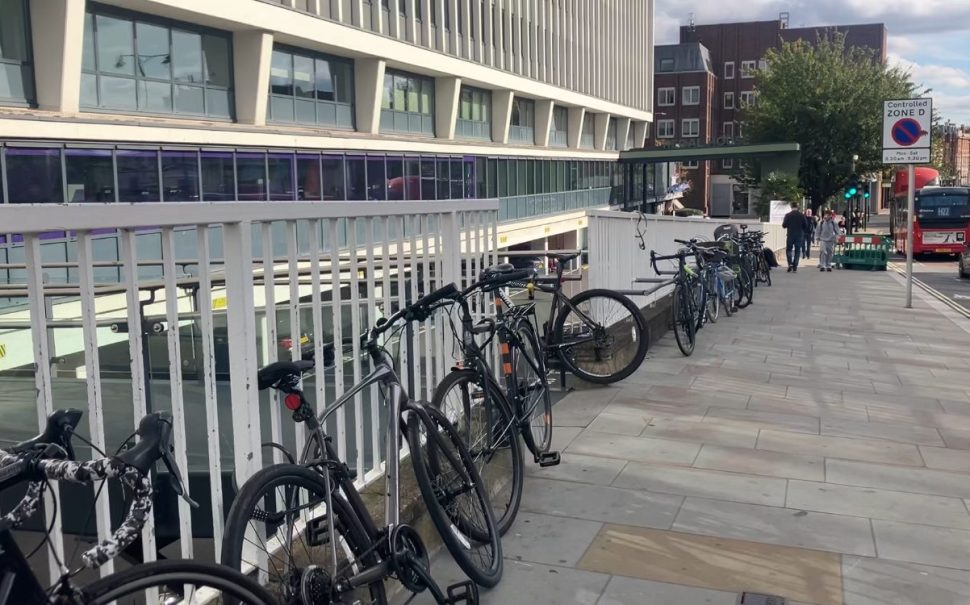British Transport Police’s (BTP) policy of limiting CCTV review to two hours per bicycle theft case has sparked frustration among cyclists.
Disappointment continues amongst cyclists over what they see as inadequate police responses to bike theft, with new rules around CCTV review time and no dedicated budget for prevention schemes adding to concerns that bicycle crime is being deprioritised.
This comes as Richmond, along with Camden, Westminster, Islington and Tower Hamlets, features prominently in the boroughs with the worst bike crime rates, with Richmond being London’s top borough for bicycle thefts at stations.
For some, the policy, which limits CCTV review to two hours per case, sends a worrying signal about resource constraints.
Jonny Singh, 45, a London commuter who had his £2,500 bike stolen this year in May, finds the announcement discouraging.
He said: “They’re not investigated now.
“My initial thought? What’s the difference? If I was a criminal, I’d just go to the stations. That’s the message.”
Media coverage of an attempted bicycle theft at Watford Junction railway station prompted BTP to issue a clarification this month, with the force describing reporting as ‘inaccurate’.
The confusion has centred on whether BTP is refusing to investigate thefts altogether, or simply limiting the time spent reviewing CCTV footage when other leads are unavailable.
Assistant chief constable Ian Drummond-Smith addressed this on BBC Radio 4’s Today programme, emphasising the policy has been in effect since August 2024 and that crimes without clear timeframes, locations, or evidence remain difficult to solve regardless of CCTV review limits.
All bicycle thefts are recorded and viable leads are pursued, but reviewing more than two hours of CCTV per case is ‘not proportionate’ given competing demands including violent and sexual offences, according to the BTP.
However, for victims like Singh, the practical effect feels the same.
After locking his Surly Disc Trucker touring bike with a D-lock to a lamppost in a residential area near Wembley, he returned 90 minutes later to find it had vanished without trace.
“Totally gone. No sign of it whatsoever, no debris, nothing on the ground,” he said. “I knocked on the house that it was in front of.
“They had a doorbell cam that filmed me locking my bike up, but then nothing.”
Despite submitting detailed evidence through the Met Police’s online reporting system, Singh never received any follow-up investigation.
Within 10 days, he was issued a crime reference number, useful for insurance claims, but little else.
Singh said: “The system worked in the sense that it recorded the crime, but at no point was there any attempt to find out who took it and get it back.
“It adds to this sense that nobody’s giving a shit about this.”
The Metropolitan Police allocates no specific budget for bicycle theft prevention.
“While pedal cycle theft prevention is incorporated into our wider patrol strategy, we do not record or monitor the number of hours dedicated to individual activities such as this,” an FOI to the Met confirmed.
“Additionally, there is no allocated budget for bicycle theft prevention or broader crime prevention initiatives.”
Bike marking kits, a deterrent tool, are provided by councils.
Singh, who now rides a £200 bike purchased specifically because he expects it to be stolen, has adopted a grimly practical approach: dividing the cost by days owned to calculate his daily ‘theft insurance’.
He said: “I was literally, for the first year, dividing the cost by the days.
“If it gets stolen now, after 20 months, it would have cost me about 12 quid a month. That’s still good value.”
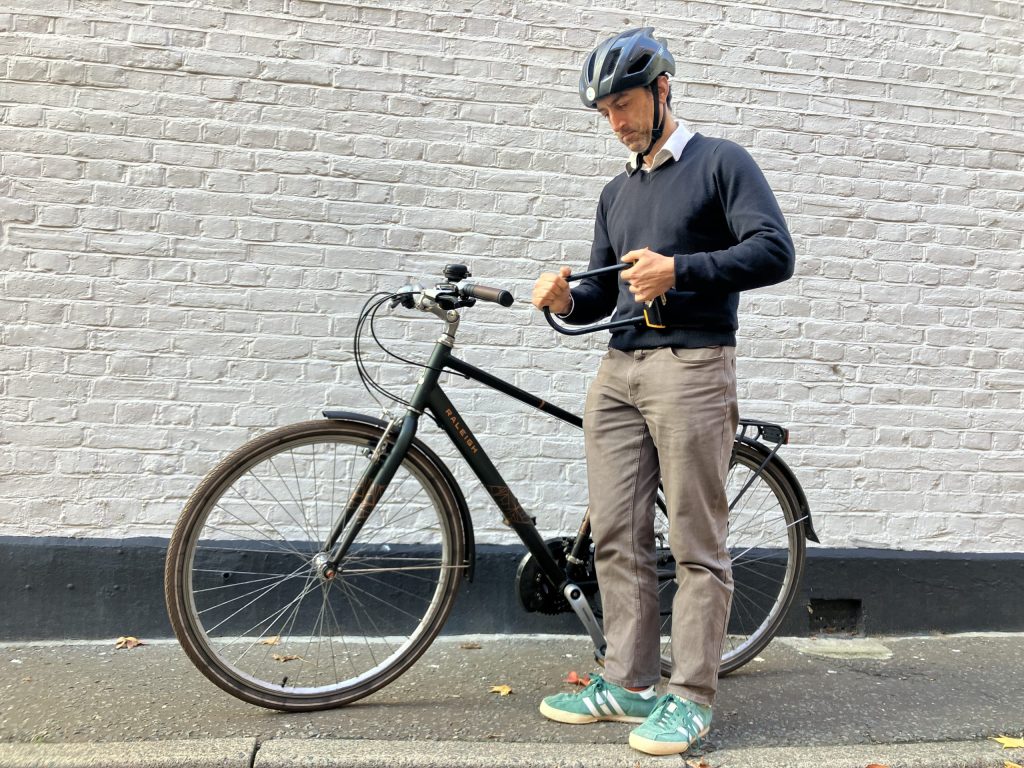
It is a mentality perhaps shared by many London cyclists.
“Most people who cycle assume that their bike will get stolen at some point,” Singh said.
“Almost everyone I know who cycles has either had their bike stolen or is planning to have their bike stolen, as in, they’ll get a cheap bike because it’s going to get stolen at some point.”
Singh suspects bike theft in London operates as an organised criminal enterprise.
“A lot of the bikes get shipped off to different parts of the country. I assume they just get sprayed or whatever, and then they get sold in Glasgow or Manchester.”
Jake Neale, 30, manager of Richmond Cycles, confirms these suspicions.
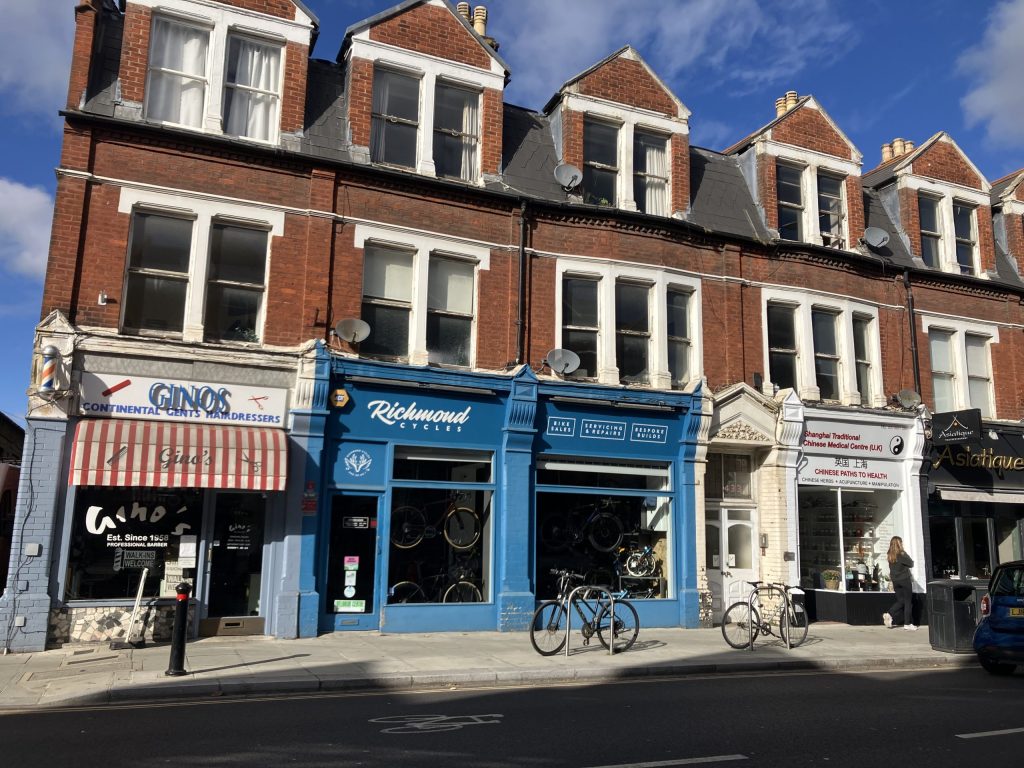
He said: “It’s definitely organised.
“This isn’t an opportunistic thing. They’re using industrial equipment now, taking angle-grinders to even the most expensive locks.”
Even locks marketed as angle-grinder resistant, such as Kryptonite locks, can be cleanly severed.
Neale explained that thieves have adapted their methods.
He said: “If the lock is too tough, they’ll just move on to the next weakest thing. That could be the post the bike’s locked to, and they’ll cut straight through that instead.”
The scale of bike thefts also affect how consumers select bikes.
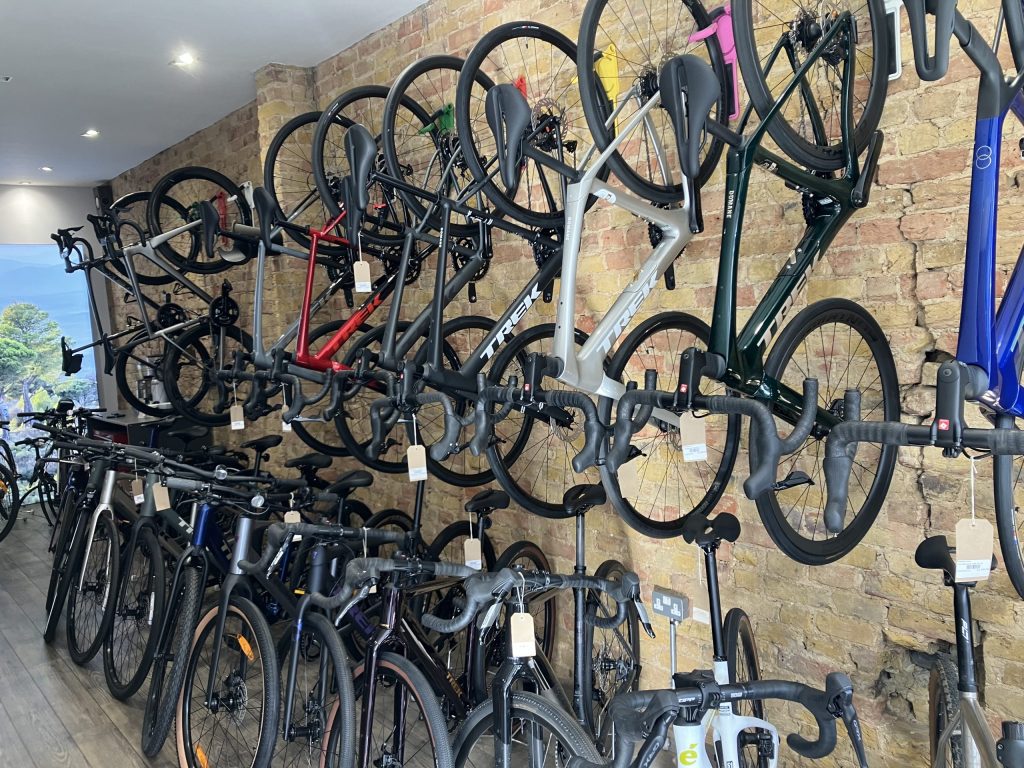
Neale explained: “People tend to avoid the brighter coloured bikes, they might go for darker or blander colours.”
The BTP’s approach to bicycle theft investigations has drawn particular criticism for appearing to contradict councils’ stated commitments to active travel and environmental sustainability.
Singh said: “I don’t see how these are the actions of a rational authority.
“Richmond has quite a good reputation for environmental policies. If you want to encourage more active travel, anything that puts people off doing that, you’re losing out as an area.”
He contrasted the approach with more visible deterrents at some stations.
He said: “At Euston station, as you wheel your bike into the parking area, there’s a recorded message that says ‘You are being filmed for crime prevention.’
“As a cyclist, you’re like, okay, well at least something is being done. It makes you feel safer and probably makes bike thieves less likely to go there.
“Whereas with this new policy, you’re not reassuring citizens and you’re not deterring criminals.”
BTP maintains that bicycle thefts haven’t been decriminalised and that all reports are logged for intelligence purposes to direct patrols.
Stephen Halloran, criminal solicitor and managing partner at Lawtons Solicitors, said the BTP announcement ‘marks a blow to bike theft victims and bike owners, who now face even slimmer chances of seeing their property returned and justice done’.
He said: “Suspects aren’t being identified because there’s usually no relationship between themselves and the victim, and it’s a low-priority crime for the police to pursue, now more so than ever.
“Unless bike theft victims are able to provide a two-hour window for an investigator to check CCTV, thefts will not be investigated.”
Halloran urged cyclists to take preventative measures including registering bikes with BikeRegister, security marking bicycles, and using quality locks even in areas that feel safe.
However, Neale at Richmond Cycles is sceptical about the practical effectiveness of some prevention tools.
He said: “There are schemes where you can get a barcode or marking on your frame,
“But practically, it only helps if the bike is recovered, that barcode isn’t much use.
“It’s a tricky one. We always advise customers to insure their bikes,
“Of course, it won’t prevent it getting stolen, but at least there’s some financial consolation.”
He added: “Bikes are going up in value and popularity,
“Thieves have identified a high-value target that’s relatively easy to acquire.”
Romy Freiburghaus, a former Thames Valley Police crime reduction advisor, who organised ‘Lock it or Lose it’ campaigns covering Berkshire, said coordinated efforts between police, councils and transport authorities once delivered results.
She said: “I worked closely with Safer Community Partnership, Neighbourhood Police Team, Neighbourhood Wardens who were funded by the local housing association, and British Transport Police.
“‘Lock it or Lose it’ signs were put up in targeted places, we promoted the Immobilise scheme, went to schools to mark bikes, and involved the press, giving interviews to the local newspaper and radio stations.
“The campaign was a success through a coordinated approach raising awareness of how to secure your bike as well as giving a clear message to criminals that we take bike theft seriously in our area.”
However, Freiburghaus warned that such initiatives have been undermined by austerity measures.
She said: “This approach was before the cuts to local government and police budgets under the Conservative government. Major redundancies happened in 2008 and again in 2011.
“The lack of police and local government involvement is a direct link to the cuts. It is very short-sighted. From 28 crime reduction advisors in 2008 there were five left in 2011 whose roles have totally changed.
“Their role was no more preventing crime, it was ensuring that local police plans were upheld.”
According to the Lawtons report, less than half of people who had bicycles stolen in 2024 said their bike was locked at the time, with many believing the area was safe enough not to require one.
Singh sees councils as missing an opportunity.
He said: “The net benefits for everybody, not just the cyclist, but the whole community, if you get more people doing active travel, is great.
“Councils should be doing more to encourage cycling, not putting people off cycling.”
For now, London’s cyclists seem resigned to a reality where bike theft is treated as an inevitable cost of cycling in the capital.
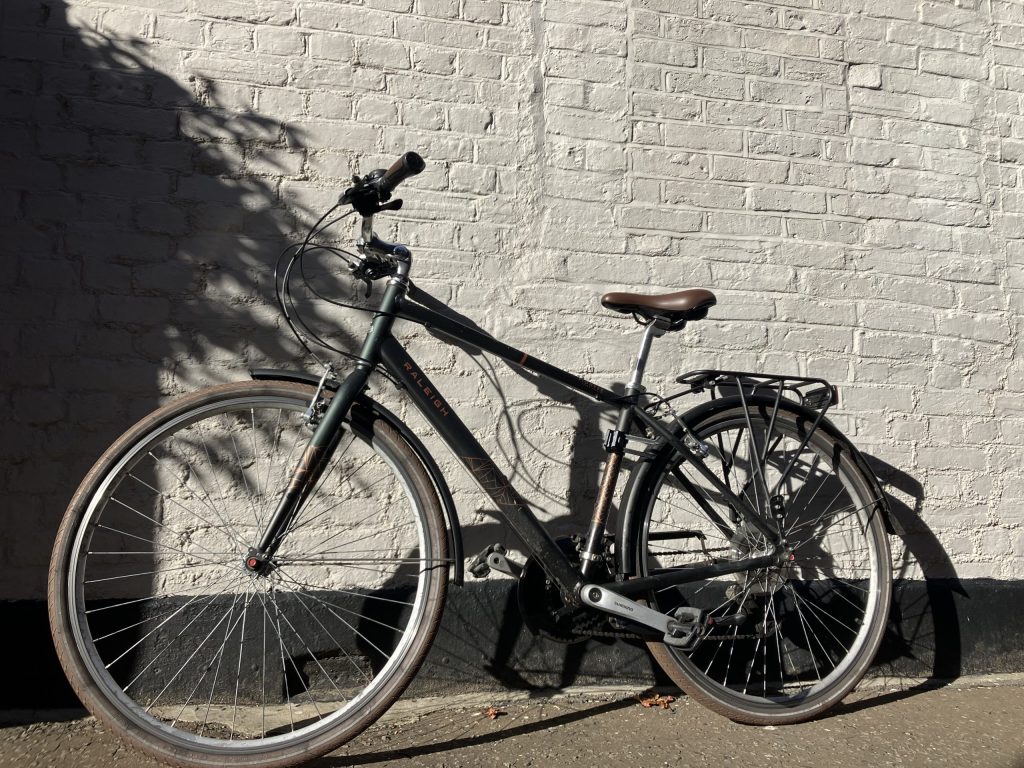
Richmond Council has been contacted for comment.
The Metropolitan Police declined to comment.
Feature image credit: Dan Dury
